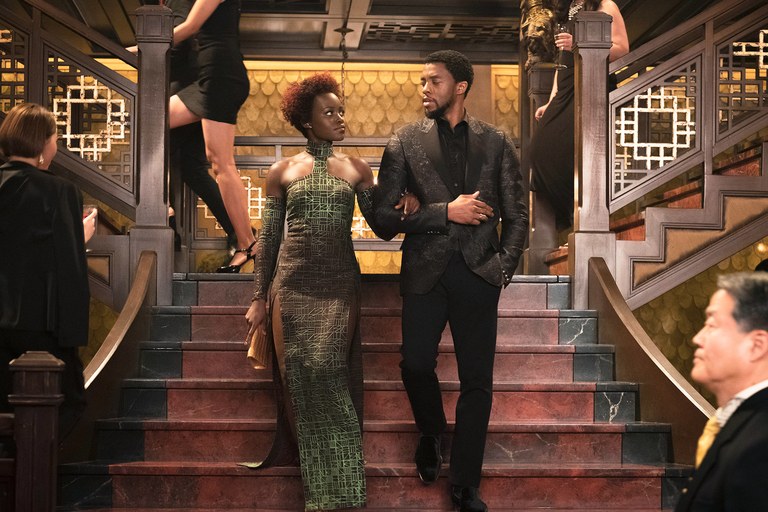The fashioned black body is one that has been excluded from the western mainstream fashion and beauty world for centuries. It is often removed to the category of subculture, even though the styles and fashions that are considered “lesser” are often appropriated by white bodies. Black Panther (2018) challenges this notion of afro-centric fashion as a “subculture” by making it mainstream through unapologetic representation.
Like most people around the world, I saw Marvel’s Black Panther directed by Ryan Coogler, which was the most culturally relevant superhero movie that I have ever seen. It was essentially a short introduction to African diasporic studies, that touched on the socio-political relationship between black Africans and those black bodies that have been historically displaced by colonization and slavery, and the desire to find autonomy in a world where whiteness is a marker of value. Black Panther has made the conversation regarding the need for the representation of black bodies in Hollywood “blockbuster” productions public. Black Panther is a completely self-contained movie that did not need quirky cameos from other Marvel superheroes to legitimize its place as a franchise. That is in part because of the powerful storyline, incredible visuals and character development of both male and female characters.

From the very start of the film, the viewer is transported into the world of Wakanda through bright colors, shots of lush landscape and incredible displays of advanced technology. However, I found myself most mesmerized by the stunning costumes designed by the Oscar nominated, Ruth E. Carter. Carter has been designing costumes for films over the past 30 years, for movies like School Daze, Do the Right Thing, Malcolm X and Amistad. Carter drew inspiration from various cultures and dress styles within Africa, in addition to Afropunk styles to create the image of Wakanda as a site of afrofuturism. Through dress, Carter was able to change, or rather provide a new way of looking at the black body that was void of colonial impact. In an article on the importance of fashion in Black Panther by Tanisha C. Ford from The Atlantic, Ford writes, “Carter is quick to point out that her work has always centered a black conception of the future, one rooted in political determinism and creative self-expression”

The costumes of Black Panther were designed first with practical functionality in mind so that the fighting body could move without restraint. Costumes within the movie also function has a symbol of self-expression, honor, and belonging. However, this idea of belonging is layered. Firstly, within the film each character’s clothes reveal which tribe they belong too, in addition to their role and rank in Wakandan society. Belonging extends outside of the film screen in the way moviegoers have been fashioning themselves in African prints and Wakanda inspired outfits on their way to see the movie. The discussion of ‘what to wear’ for watching Black Panther has become a growing and trending topic on Black Twitter, solidifying it as a pop cultural and socio-political discursive event. The discussion around what one should wear to the movie reveals the fulfilment of the craving to be seen and to have one’s ancestry honored. It is also a testament to the idea of black fashion escaping the realm of the mythic and imaginary to one that is real and has permanence and value in its own right.
By Destinee Forbes


